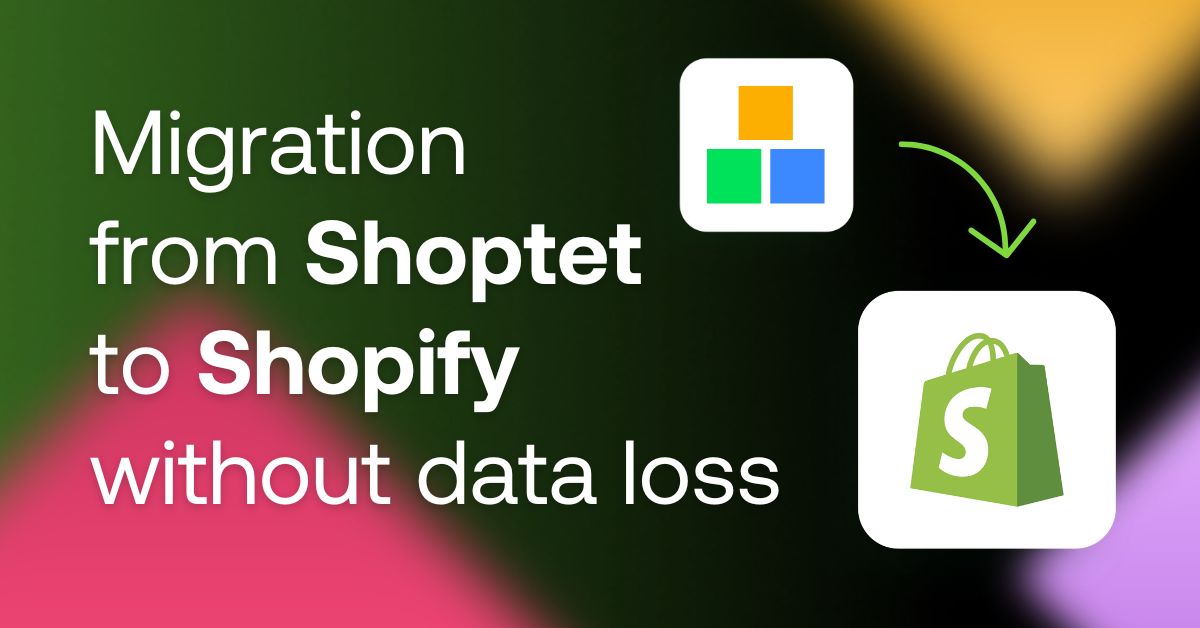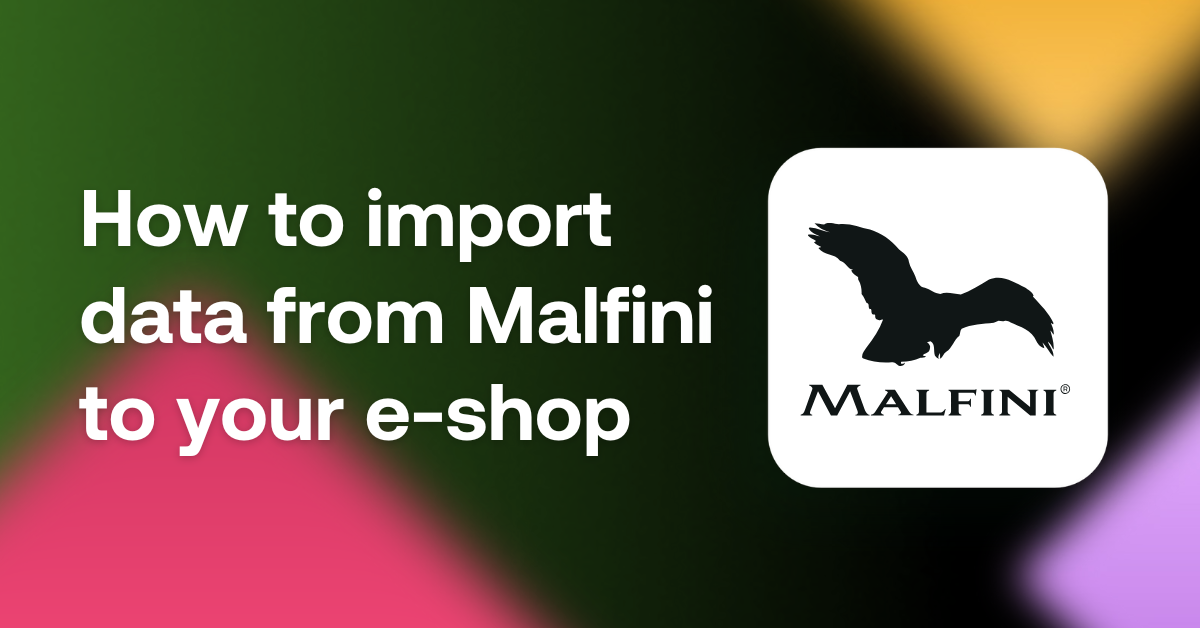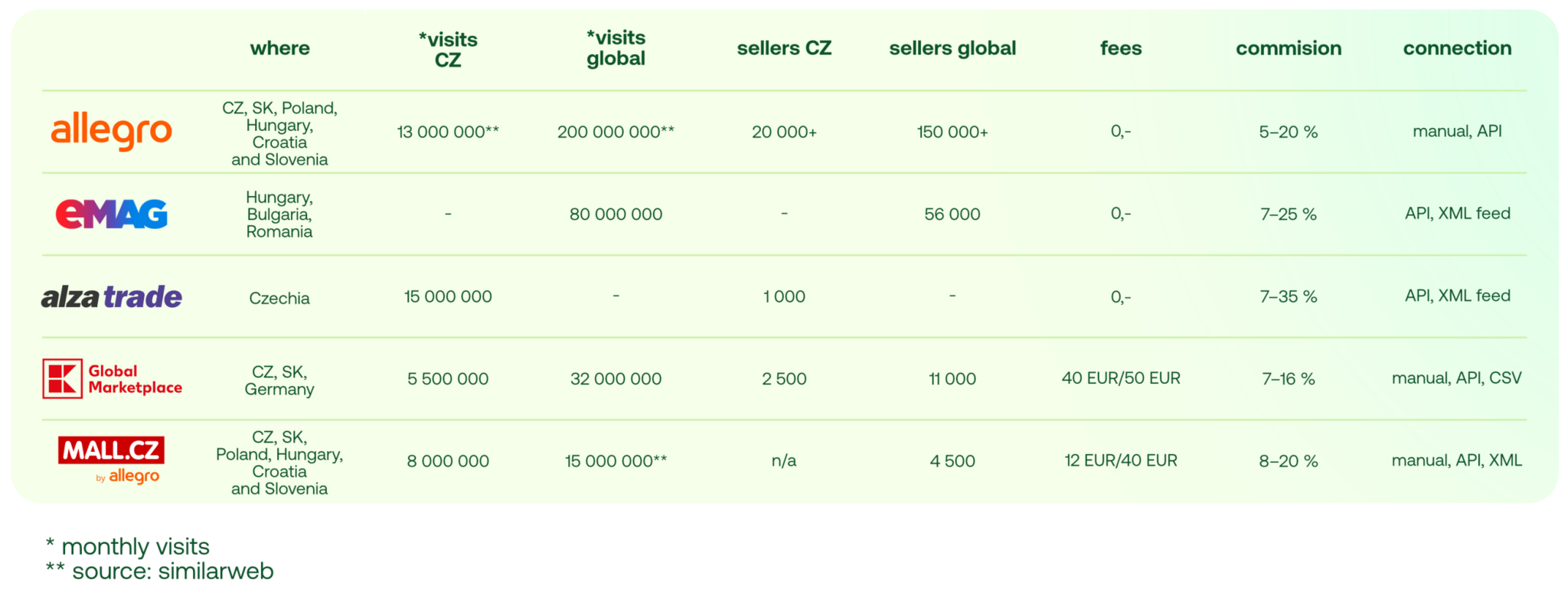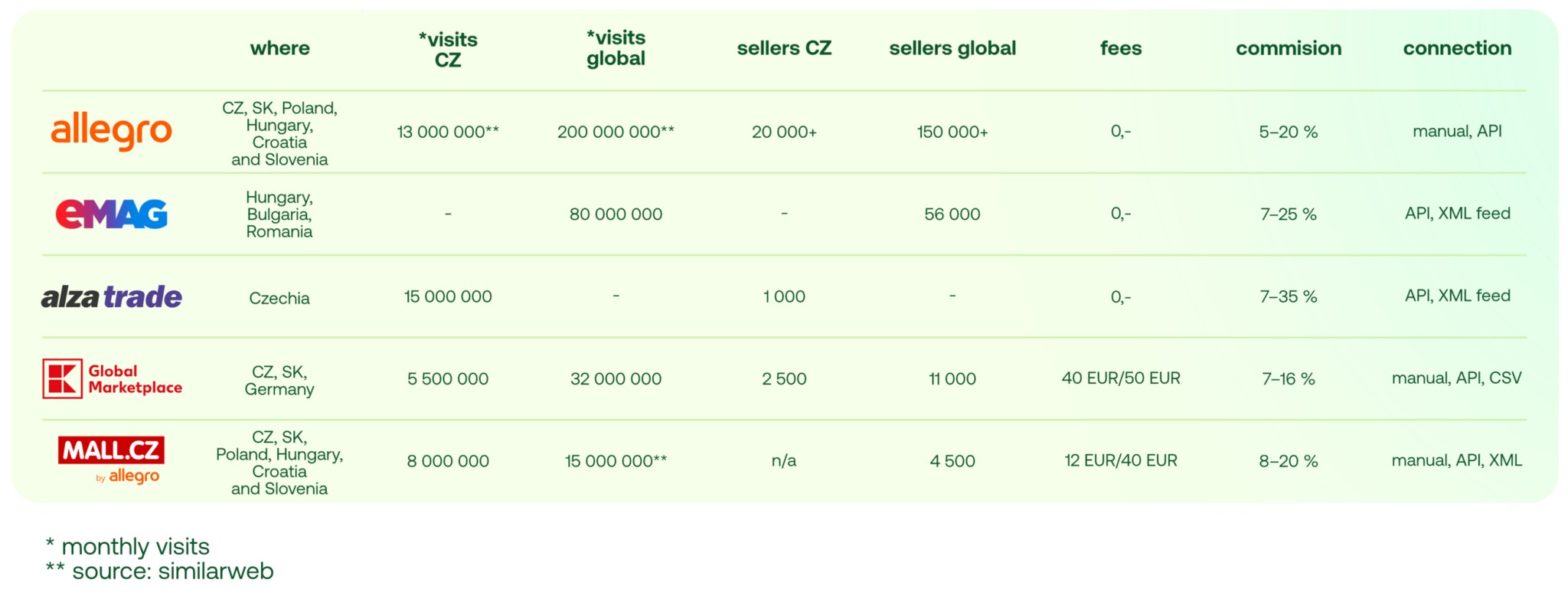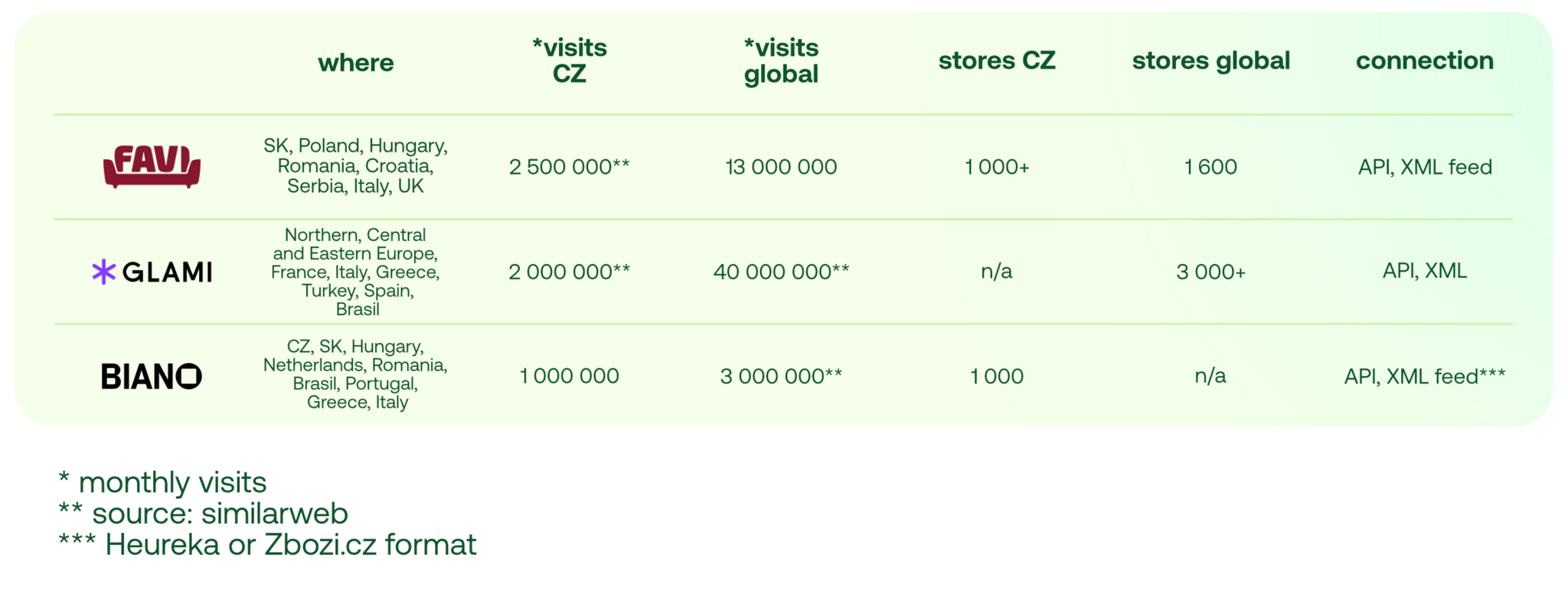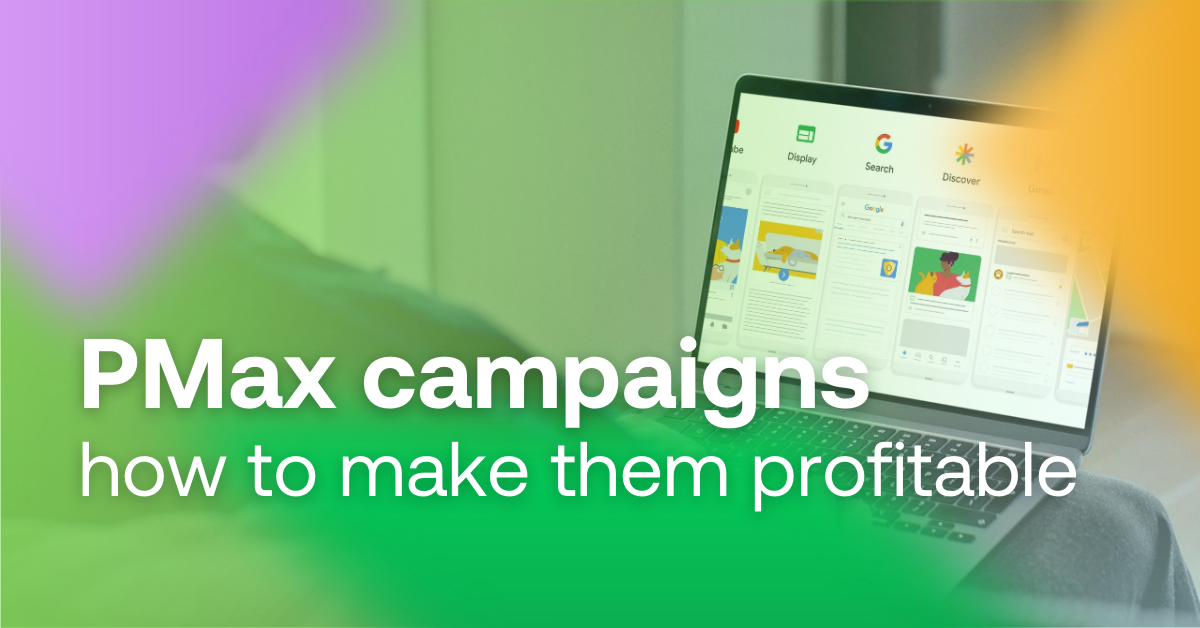Do you want to increase your profits from online sales? Advertise on product comparison sites and marketplaces. It will make your goods and online store more visible so that shoppers reach for them before the competition. Which sales channel to choose? What are their advantages and disadvantages? And how to start selling? We bring you a great comparison of the most famous advertising platforms in the CEE region, which you must try this year.
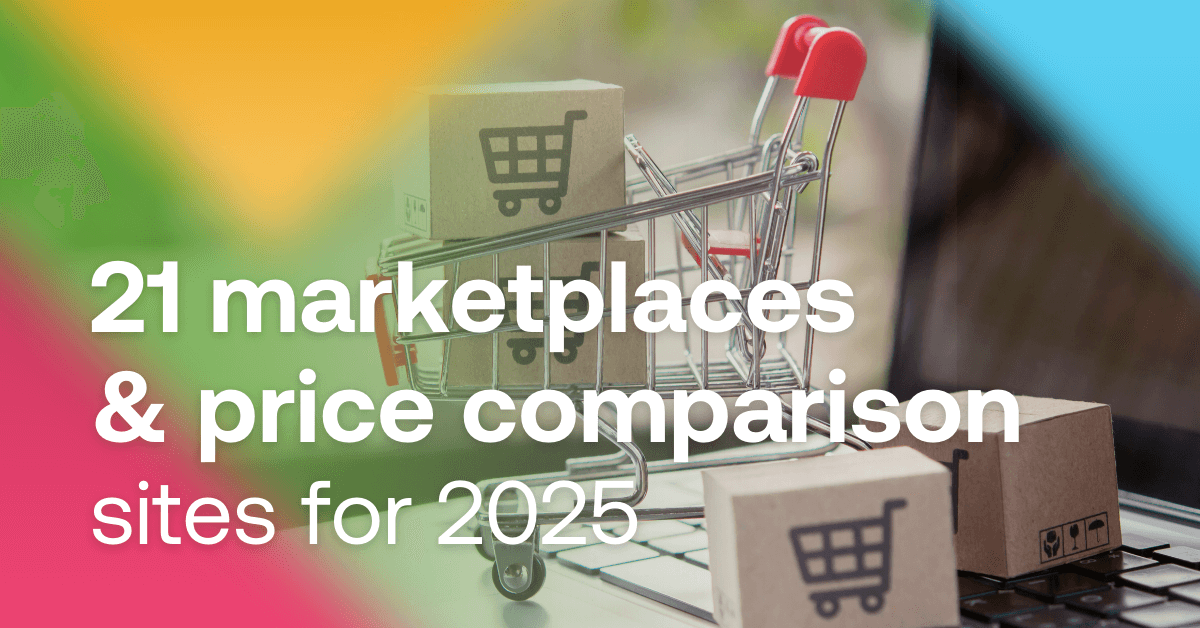
Do you want to increase your profits from online sales? We present a comparison of the most popular CEE advertising platforms to try this year.
In this overview, we look at CEE sales channels from the point of view of the country of operation, the method of connecting the feeds, and how much your presence or advertising on them will cost you. But we are also interested in the total attendance and the number of sellers. We draw figures for monthly average traffic from the official websites of the systems in question, and if they are not available, we use the similarweb website. If the number of sellers is not listed, it means we could not find this information.
MARKETPLACES
Marketplaces are a recent trend for online sellers across Europe, allowing them to offer their products through a single website. They are also a way to be present in a traditional e‑commerce environment without having an online store. Amazon, eBay, Alibaba, and Etsy are all marketplaces that you surely know. But there are also European alternatives. They are called Allegro or Kaufland.
Think of a marketplace as a large shopping mall. For it provides you with space to sell your goods, you pay a commission on each item you have sold here. You don’t have to laboriously search for customers because many people know the marketplace and buy from it. You manage pricing, packaging, shipping, and any complaints.
Advantages of marketplaces:
- you only pay when you sell
- quick and easy market entry
- low entry costs
- own online store is not necessary
- large and diverse customer base
Disadvantages of marketplaces:
- high competition
- sales commission (around 5 – 17%)
- low customer loyalty
- background of your brand (in free versions you sell under the name of the given marketplace)
Marketplaces can be a good solution if you want to expand abroad quickly. You don’t have to actively look for local customers — they will find you in the local marketplace themselves.
What is feed, and what do you need it for?
You need a feed to sell or advertise outside your online store. It is a data file that supplies the sales platform with information about your products, such as name, description, price, weight, etc. The most common type of feed is XML and CSV format. Where to find a feed, and how to edit it? We explain that in the What is a feed and why you need it in your e‑commerce strategy article.
-
Kaufland
DE: 32,000,000 visits/month, 11,000 sellers
where: Germany, Slovakia, Czech Republic
Kaufland is one of the fastest-growing online marketplaces in Germany, the Czech Republic, and Slovakia. You can benefit from high traffic and a relatively small number of sellers. Another great advantage is that you only need one registration for all three markets.
In addition to the standard sales commission, expect a monthly rate of €38. The price includes the option to upload an unlimited number of products, multi-channel marketing, product translation, or customer service in your language. You can also add a link to your online store to your products for an additional fee.
-
MALL
all: approximately 15,000,000 visits/month, 4,500+ sellers
where: Poland, Hungary, Croatia, Slovenia, Czech Republic, Slovakia
Becoming part of the Allegro group, the MALL grows steadily and offers sellers good conditions.
MALL charges monthly fees according to the type of connection (€12 for manual product deposit and €39 for API/XML feed). You will pay €0.36 + margin from sales according to the given category for each order placed. In return, MALL takes care of paid promotion of your products (including Black Friday campaigns) or helps return goods.
- fees: €12 for manual connection, €40 for API/XML feed
- commission: €0.36 per order + 8 – 20% depending on the product category, more information here (only in Slovenian)
- connection: manual, API, XML feed (product and availability)
-
Allegro
all: 200,000,000+ visits/month, 150,000+ sellers
where: Poland, Hungary, Croatia, Slovenia, Czech Republic
Allegro is nicknamed the Polish Amazon. And no wonder. It is the largest online shopping platform and even the second most visited site in Poland (more than YouTube). This marketplace boasts a wide range of products and easy access to the Polish market, where you can reach up to 20 million potential customers.
Allegro has no mandatory monthly fees. However, to be seen, count on some investment. Allegro offers so-called paid subscriptions for €10, €40, and €600, which open the door to analytics or adding your logo to offers.
- fees: €0; however, there is a subscription option with access to extended features
- commission: 5 – 20% according to categories, more details here (only in Polish)
- connection: manual, API
-
eMAG
80,000,000+ visits/month, 56,000 sellers
where: Hungary, Bulgaria, Romania
Do you need to get your goods to the Romanian, Bulgarian, or Hungarian markets? eMag is the largest marketplace in this area. A respectable 84 million customers visit it every month.
Selling on eMAG will only cost you the sales commission. But also expect some expenses for paid promotion so that customers can find your goods among all 12,000,000 products. Free product translations are a bonus.
-
AlzaTrade
15,000,000+ visits/month, 1,000 sellers
where: Czech Republic
Alza opened to external sellers as AlzaTrade in 2021. It is a great business opportunity because of its high traffic on the one hand but still a small number of sellers on the other hand. You can use it without fees and only pay a commission for the goods you sell.
It is good to know that AlzaTrade offers a slightly different model than usual marketplaces. Goods are not sold to customers by individual sellers but by Alza. Customers thus conclude a contract directly with Alza. The channel is responsible for the complete sales and after-sales process, including complaints, shipping, and the services provision. In relation to Alza, individual sellers are then in the position of suppliers. It is the so-called dropshipment model.
- fees: €0
- commission: 7 – 35% depending on the product category, more information here
- connection: XML feed in AlzaTrade format. AlzaTrade distinguishes between two types of feed – product and availability.
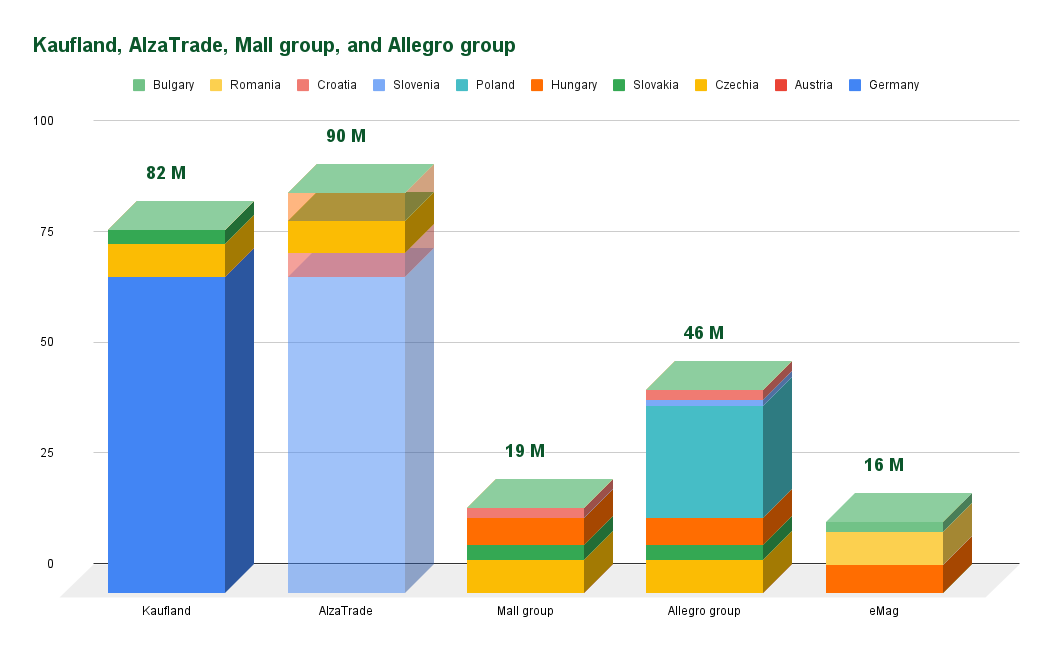
COMPARISON ENGINES
Comparison engines allow users to compare prices and parameters of different products from different sellers. Comparison engines usually do not provide the possibility of a direct product purchase, thus they primarily differ from marketplaces. After clicking on the product, the customer is redirected to your online store. Therefore, it is a must to own an online store here. A great advantage of comparison engines is the possibility of collecting reviews, which will help your store gain credibility.
Comparison engines sort products into product cards. Each card represents a given product (e. g. iPhone X 64 GB space gray) and offers a price comparison of individual stores. It is where the battle for the best (highest) position between stores takes place.
Comparison engines also differ from marketplaces in other types of fees. Since the purchase does not take place on the comparison engines, online stores do not pay a commission for the sale made but for the click-through (CPC), i. e. for each click on their offer.
Advantages of comparison engines:
- one of the sources of visits to your online store
- wide customer base
- collecting reviews and building credibility
Disadvantages of comparison engines:
- the necessity of owning an online store
- high competition within product cards and pressure on prices
- the impossibility of comparing unique products that only you sell on the market
Comparison engines are visited by customers who already know what they want and are just looking for the best place to buy it. Therefore, sellers are a relatively high conversion channel.
-
Google Shopping
where: the whole world (except Crimea, Cuba, Donetsk and Luhansk regions, North Korea, Iraq and Syria)
Google Shopping is one of the largest product comparison sites in the world. Google Shopping campaigns are one of the types of Google Ads. They are often a significant source of conversions and a good indicator of whether it makes sense to advertise on other platforms.
You can upload your products to Google Merchant Center for free. You only pay if you decide to go for ads.
- fees: cost per click (CPC) according to competitor offers (at least 0.01 of the given currency)
- connection: API; XML feed according to Google specifications
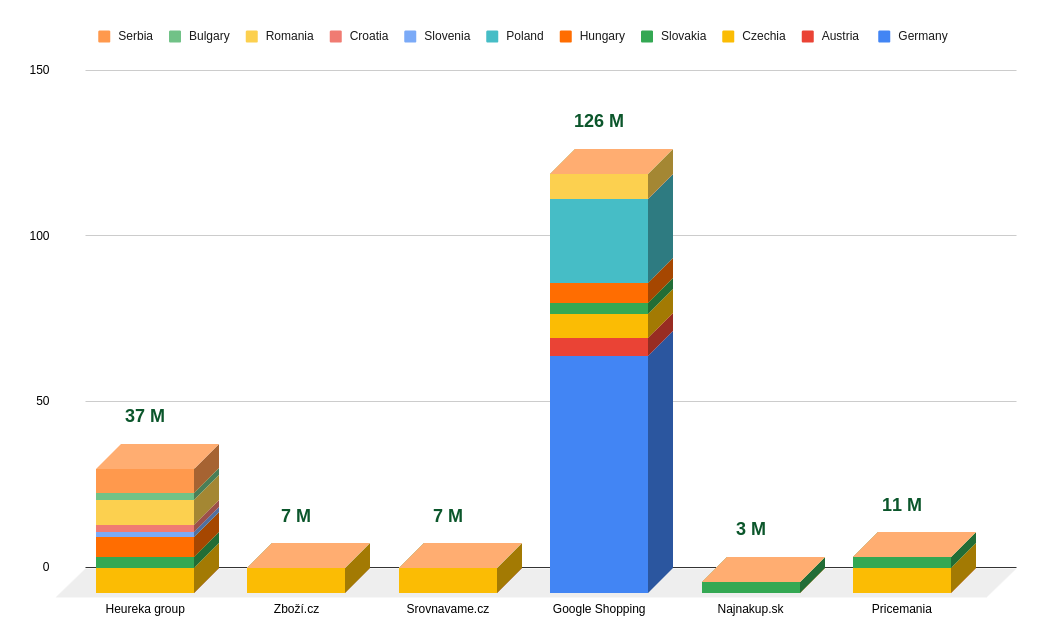
Comparison engines and marketplaces are the easiest ways to reach customers abroad. You can use the local customer base in several European countries. You can start, for example, Polish ceneo.pl. Foreign “alternatives” of the Czech Heureka are also popular. In Croatia, it is jeftinije.hr, followed by Slovenia’s ceneje.si, Hungary’s árukereső.hu, Romania’s compari.ro, Bulgaria’s pazaruvaj.com and Serbia’s idealno.rs. These are comparison engines with the option of direct purchase. You can easily create feeds for these platforms in Mergado. It knows the formats and requirements of each of them.
-
Heureka
where: Czech Republic, Slovakia, Hungary, Romania, Bulgaria, Slovenia, Croatia, Serbia, Bosnia and Herzegovina
Heureka is the most used product search engine in the Czech Republic and Slovakia. It also functions as a marketplace within the Heureka marketplace. To be able to sell on Heureka, you have to obtain the Verified by Customers certification, have a long-term top rating, and be in PPC mode.
The basic version of Heureka is free. So, being in PPC mode is almost a must. Only then will you appear in the product tab and gain access to several other functions, such as the possibility of bidding, generating reports, and being part of the marketplace.
- fees: click-through from full text and shop detail €0,16, other click-throughs in PPC mode according to individual categories
- commission: you will pay 2.9 – 11% for direct sales commission depending on the category
- connection: API, XML feed
-
Zboží.cz
2,100,000 visits/month, 21,000 advertisers
where: Czech Republic
Zboží.cz is the second most popular comparison engine in the Czech Republic. It was founded in 2007 by the Seznam.cz search engine. The success of Zboží.cz is linked to how Seznam is currently doing.
Unlike Heureka, you can only advertise in paid mode here. However, you only pay for a click-through to your online store. You do not need to own any trust certificate to bid, as at Heureka.
-
Srovname.cz
approximately 100,000 visits/month, 10,000 advertisers
where: Czech Republic
Srovname.cz has lower traffic than its bigger competitors. Even so, it is the third most popular in the Czech Republic.
With new management and an emphasis on artificial intelligence, this comparison engine has significantly increased sales year-on-year. Srovname.cz also belongs to the channels that handle paid advertising for you.
- fees: click-through from full-text CZK 1.50 (in season CZK 1.87), click-through from shop detail CZK 1.80 (in season CZK 2.25) + enough to beat the competition
- connection: API, XML feed
-
Pricemania
approximately 100,000 visits/month, n/a advertisers
where: Czech Republic, Slovakia
Although you can find the Pricemania comparison tool in the Czech Republic, it is more successful in Slovakia, where it ranks third among all grocers. It offers three programs for online stores, depending on the number of functions and price per click.
- fees: click through from the full text and details of the store 1.8 CZK without VAT
- connection: XML feed
-
NajNákup.sk
approximately 300,000 visits/month, 10,000+ advertisers
where: Slovakia
To expand to Slovakia, consider the comparison tool Najnakup.sk. After Heureka, it is the second most used portal on the local market. In addition to the free version, it offers three more advanced programs.
- fees: price per click according to individual categories
- connection: XML feed
-
Ceneo.pl
50,000,000 visits/month, 26,000+ advertisers
where: Poland
A smaller but significant competitor of the Polish Allegro. Ceneo has been on the market for 18 years and is the most visited comparison among Poles.
Ceneo offers a 30% discount on the first advertisement. You can find the code here: https://biznes.ceneo.pl/
-
Jeftinije.hr
approximately 1,500,000 visits/month, 3,000 advertisers
where: Croatia
Jeftinije.hr is the largest comparison engine in Croatia. It boasts a reach of 76% of all online Croatian shoppers. The first step to start advertising is to fill out this questionnaire, after which local business managers will guide you through the entire process.
-
Ceneje.si
1,500,000 visits/month, 3,000 advertisers
where: Slovenia
The ceneje.si comparison tool is a great way to expand into Slovenia. You can create a higher turnover for your online store by operating in Slovenia. Just fill out the entry questionnaire, and your Slovenian expansion can begin. It is best to send the feed in the local language. In any case, Ceneje.si will also approve a Croatian feed.
-
Árukereső.hu
14,000,000 visits/month, 4,100+ advertisers
where: Hungary
Among Hungarians, árukereső.hu is the number one shopping platform in terms of traffic and popularity. Running an account is free, but we recommend going the PPC route. Also, consider joining the Trusted Shop program. Getting good customer reviews will get you an award and a logo that supports your store’s credibility.
To advertise on this popular Hungarian comparison site, you must have a feed, currency, and online store translated into Hungarian.
-
Compari.ro
4,000,000 visits/month, 15,000 advertisers
where: Romania
Year by year, more and more people shop online in Romania. If you want to target the local market, we recommend the comparison tool compari.ro. You advertise for free in limited mode, but we recommend operating in PPC mode. Also, consider joining the Trusted Shop program.
-
Pazaruvaj.com
2,000,000 visits/month, 4,500 advertisers
where: Bulgaria
The most popular comparison site in Bulgaria is pazaruvaj.com. Almost a third of the population visits it. We recommend advertising in paid mode and joining the free Right Shop program.
-
Idealno.rs
300,000 visitors per month /month, 300 advertisers
where: Serbia
The Serbian Idealno, like Jeftinije and Ceneje, offers the option to display the international CERTIFIED SHOP certificate. It is a paid service that allows you to get a certified shop badge and thus strengthen the credibility of your brand.
- fees: cost per click (CPC) according to individual categories
- connection: XML or CSV feed, more information here
SPECIALIZED SEARCH ENGINES
Specialized search engines function only as a catalog and do not combine products. We do not speak of them as comparison engines but as search engines. So if we are looking for a wardrobe, for example, we will not find product cards like on search engines of this type, but only a lot of individual offers.
The principle of cost per click does not change here. You pay search engines for each customer who clicks on your offer.
Advantages:
- a must-have for specialized online stores (fashion, furniture)
Disadvantages:
- higher costs – the need for more frequent advertising checks
-
Biano
All: approx. 3,000,000 visits/month, n/a
where: Hungary, Netherlands, Romania, Brazil, Portugal, Greece, Italy, Czech Republic, Slovakia
Biano ranks among specialized product search engines that focus on furniture and decoration.
Its specific is that it does not compare products. On the contrary – if you have the same product as a competitor, it shows only one product with the highest score.
- fees: click-through from full text €0.06 (in season €0.07), click-through from shop detail €0.70 (in season €0.09) + enough to beat the competition
- connection: API; Biano does not have its feed specification. You can use, for example, the Google product feed.

“On Biano and GLAMI, it’s important to be very careful about the number of products you send to these portals via your XML feed. These sites can generate an extremely high number of clicks in a short period of time and without proper oversight, your promotion can incur significant financial costs. We therefore recommend that you only send filtered top categories, products with the best margins or, in the case of GLAMI, only products in popular sizes to begin with.”
Libor Toporcer, Invelity
-
FAVI
all: 13,000,000 visits/month, 1,600 advertisers
where: Poland, Hungary, Romania, Croatia, Serbia, Italy, Great Britain, Czech Republic, Slovakia
Like Biano, FAVI is an online catalog of furniture and household items. It operates in 9 countries and contains around 5 million products.
TIP: You have to set bidding on FAVI through its interface and not automatically through the XML feed.
-
GLAMI
all: 40,000,000 visits/month, 3,200 advertisers
where: Germany, Poland, Hungary, France, Romania, Slovenia, Greece, Turkey, Bulgaria, Croatia, Spain, Brazil, Estonia, Lithuania, Latvia, Italy, Czech Republic, Slovakia
GLAMI is the right search engine for sellers who specialize in fashion. It is one of Europe’s biggest fashion, clothing, and accessories comparison sites. GLAMI combines the elements of a product search engine and a social network. It allows customers to view products, create collections, and share and comment.
- fees: minimum price per click by individual category, see here
- connection: API; XML feed in GLAMI format
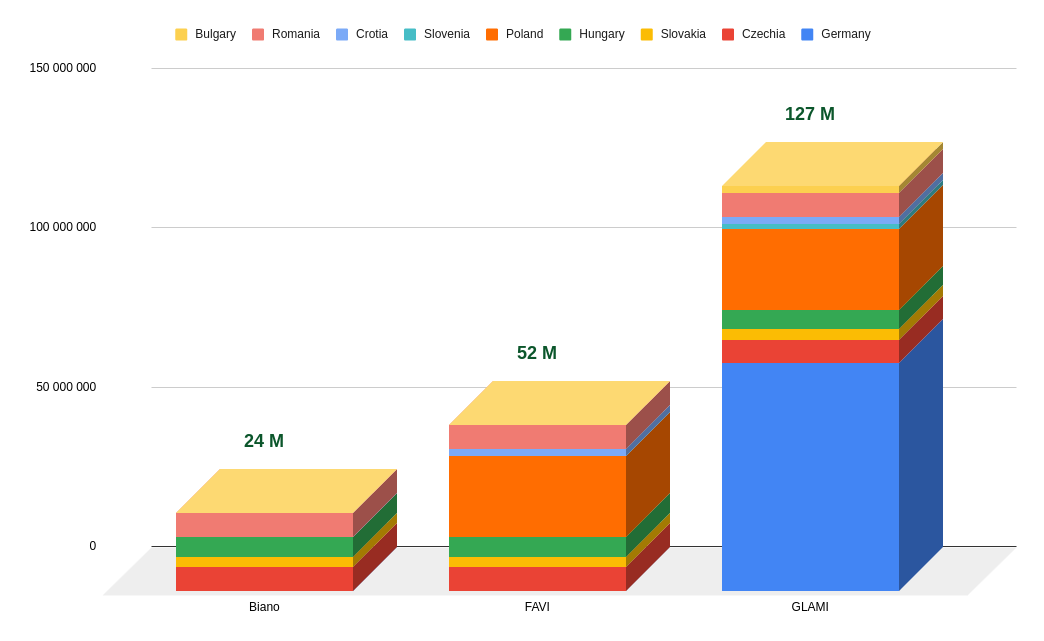
How to choose the right sales channel
Have you read this far and still don’t know which sales channel or country is right for you? It is a very individual question that you have to answer for yourself. However, we have one tip for you. Go for markets with a high growth potential and a few competitors. You will have a much better chance of breaking through with your products. Bulgaria, Romania, and Slovenia offer such a market environment.
If you still want to target markets such as Germany, Austria, or the Czech Republic, which are characterized by a significant maturity of the online environment and many potential buyers, focus on unique goods with high added value.
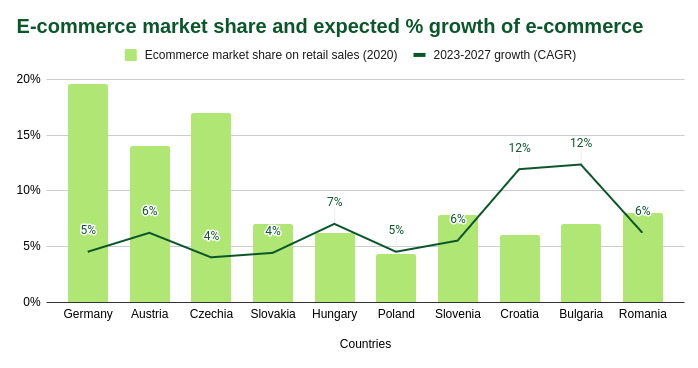
How to edit the feed for individual marketplaces and comparison engines
Each of the sales platforms requires a different form of product feed. For your products to be successfully listed in a given seller or marketplace, you need to supply them with a feed that meets the requirements of the given channel – its content is correct and as up-to-date as possible. In this case, tools with which you can modify the feed in bulk come into play. One of them is Mergado. This automated feed editor knows the specifications of more than 1000 sales platforms, so you don’t have to worry about the correctness of your data. Mergado can help you pick the categories into which the products should be placed, convert the feed formats, and send the finished ones directly to the given platforms. It’s free for the first 30 days.
Do you already know where to start selling your products? Whether you decide to use a comparison engine or a marketplace, studying the requirements of the given sales platform and preparing a quality feed is the first step to start with. It’s simple. The better the feed, the more correct the listing. Thus more customers click on your product.

Veronika Kusalíková
A copywriter and content specialist Veronika is in charge of the English content and communication. She spreads the word about Mergado and e‑commerce on our blog and social media. After she shuts her computer down, you can catch her knitting a sweater, strolling around second-hand shops or traveling.
